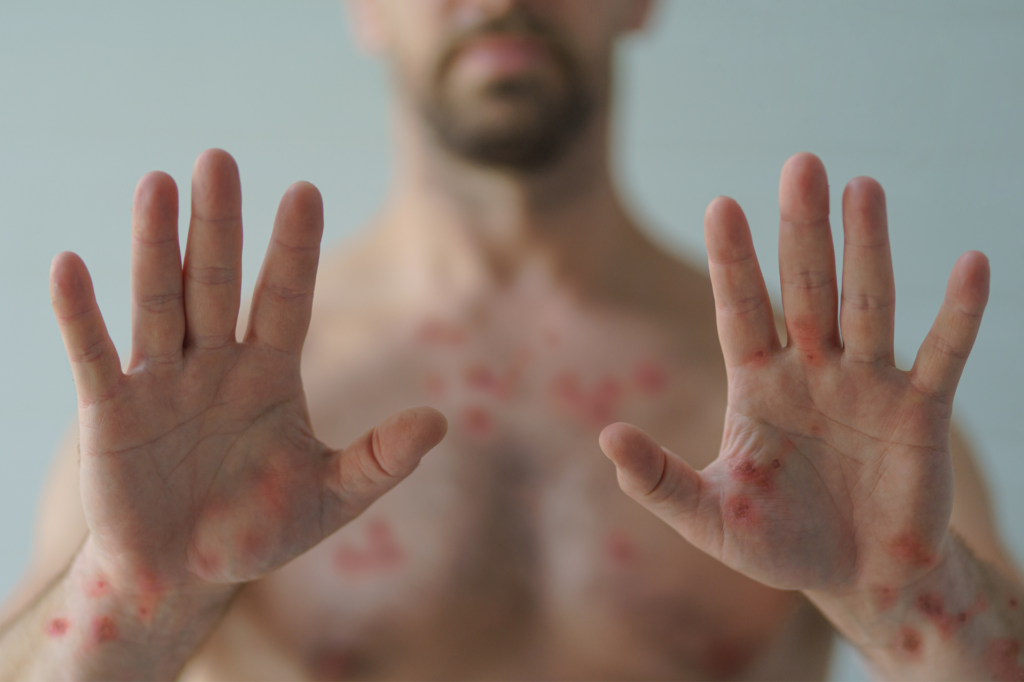
To date, about 2,000 cases of monkeypox have been detected in countries where it was not normally reported, of which at least 155 cases are in the U.S., 98 percent of them in men. However, according to the Centers for Disease Control and Prevention (CDC), there have been no deaths related to this virus.
Experts gathered at the panel "How afraid should we be of smallpox?" organized by Ethnic Media Servicesto talk about the symptoms of the disease and the possibility that it could become a pandemic as happened with COVID-19.
The first case identified in the U.S. occurred on May 17 in the state of Massachusetts. It was an adult male who traveled to Canada and was treated and did not require hospitalization.
According to William Schaffner, a professor in the Department of Health Policy and Vanderbilt University in Nashville, "monkeypox clinically resembles smallpox."
What symptoms should you pay attention to?
Among the most common symptoms of monkeypox are headache, fever, swollen lymph nodes, among others. In addition, a rash develops on the face, inside the mouth and genitals, these lesions may be in different phases simultaneously. While such symptoms disappear in about three weeks.
The incubation period of the disease is 1 to 2 weeks for the appearance of the first symptoms which last a couple of days and then give way to the appearance of the rash.
Schaffner commented that this virus can cause lesions in the genital area, buttocks and even the anus, so there can be confusion at the time of diagnosis, which is why it is advisable to perform a PCR test similar to the one used to detect COVID-19.
It is important that in case of these symptoms or suspicion of having "monkeypox", those affected go to their health care provider to receive the corresponding tests and treatment.
Is there any way to protect us from simian pox?
According to Dr. Schaffner, there are two vaccines originally designed to prevent smallpox, however, these also prevent the disease.
The safest is applied in two doses and is approved by the Food and Drug Administration (FDA).
In that regard, he noted that some men have already received the vaccine in New York.
Call to avoid stigmatization of LGBTIQ+ groups
Monkeypox has symptoms that can be mistaken for sexually transmitted diseases because, according to Shaffner, monkeypox has been confined to men who have sex with men.
Gregg Gonsalves, public health correspondent for The Nation, pointed out that there is a notion that it is a disease related to the LGBTIQ+ community.
However, the reality is that it is an endemic condition in Central and West Africa, so he called for the avoidance of discrimination and stigmatization of LGBTIQ+ groups.
"There is a need not to discriminate, not to stigmatize, but at the same time it is important to talk about the LGBTIQ+ communities that are familiar with these diseases," as non-stigmatization allows for better communication with public health departments to work with these communities and thus minimize the risk of becoming infected, he detailed.
Monkeypox vs COVID-19
Monkeypox is a virus that spreads through close personal contact, said Schaffner, who pointed out that it is usually skin-to-skin through the respiratory tract or through contaminated towels or clothing, so "it is not a virus that spreads widely or rapidly compared to COVID-19".
"It's very tempting to compare this to the spread of COVID-19 and the changes we've seen, we don't know if there are other possible mutations that could make the virus more stable or more efficient or more effective at getting into cells through the nostrils, but it is something that could be very transmissible," said Dr. Neuman, who added that monkeypox is a slowly changing virus.
You may be interested in: San Mateo County calls for smallpox awareness this summer


